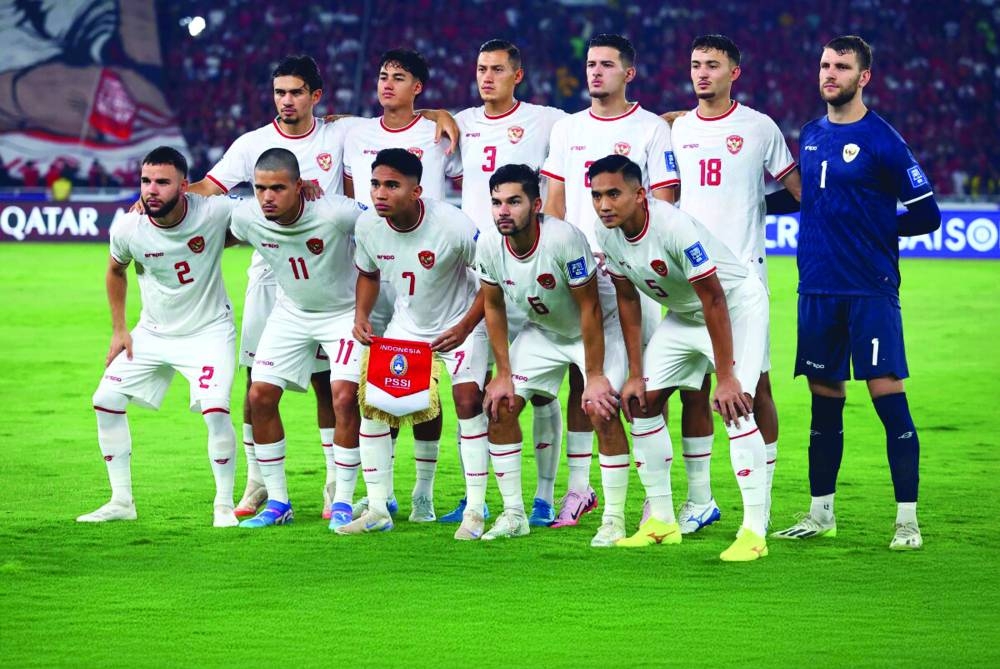Erick Thohir once owned Inter Milan and still has an interest in English club Oxford United but the abiding football dream of the Indonesian businessman cum politician is to take his country back to the World Cup.
Football is followed passionately by tens of millions in the Southeast Asian archipelago but Indonesia’s sole World Cup appearance came as the Dutch East Indies in 1938 and the country has rarely threatened a return since independence in 1945. Thohir, who became chairman of the national football association (PSSI) last year, believes that Indonesia should at least be in the frame for a trip to the finals in 2026 with up to nine slots available to Asian teams.
“Indonesia should be in the top nine in Asia, with our population and our passion for football from all of the people of Indonesia. But of course it takes time,” the 54-year-old cabinet minister said. “We want to be in the top 50 in the world by 2045, because by that time our GDP per capita will be around $27,000-30,000. This is a big country, so by then the quality of the football will have increased.”
Indonesia’s per capita GDP is currently around $5,000 and the national team are 127th in the FIFA rankings, leaving plenty to do over the next two decades for Thohir and his colleagues in both the realms of economics and football. “Many people have mentioned that we’re sleeping giants and this is why we have to create a programme for how we can be better,” he said of the task facing the PSSI. “Government support is very important, the private sector is very important, and also the federation.”
As well as plotting the long-term strategy for improvement, Thohir has overseen efforts to entice members of the Indonesian diaspora, mostly born in the Netherlands, to play for the land of their heritage. The project has been a great success and South Korean coach Shin Tae-yong now has control of a squad that has become increasingly capable of competing with Asia’s best.
Indonesia are third in their World Cup group after six of 10 matches, one point behind Australia in the battle for the second automatic spot at the finals and very much in the running for the fourth round of Asian qualifying if they miss out. “We are lucky that many of our diaspora living abroad believe in this project,” Thohir said.
“We want to qualify for the World Cup, we want to qualify for the Olympics and this is why all these players playing in Europe believe in the programme. They want to come back to their roots because it is sentimental for mama, papa, grandma and grandpa and this is something that I bring to them, a good programme and a dream we want to achieve.”
Thohir and the PSSI might struggle to find a similar quick fix for some of the more endemic problems in Indonesian football, however. Hooliganism and match-fixing have long blighted the domestic game while the PSSI was banned by global governing body FIFA due to government interference in 2015.
In 2022, at least 125 people died and more than 320 were injured after a match in East Java when fans invaded the pitch and police fired tear gas, triggering a fatal crush. “Sport is local”, said Thohir. “We have cleaned up our league, we have partnered with the Japanese federation to clean up our referees.
“If we have more clubs that are focused on the fundamentals, we can grow our talent. Of course, we are a bit unique because we are trying to do it from the top of the pyramid down. “We will continue the programme to bring up the sleeping giant onto the map of world football.”
Sport
Thohir determined to take Indonesia back to World Cup
Indonesia’s sole World Cup appearance came in 1938

Indonesia are third in their World Cup group after six of 10 matches, one point behind Australia in the battle for the second automatic spot.
